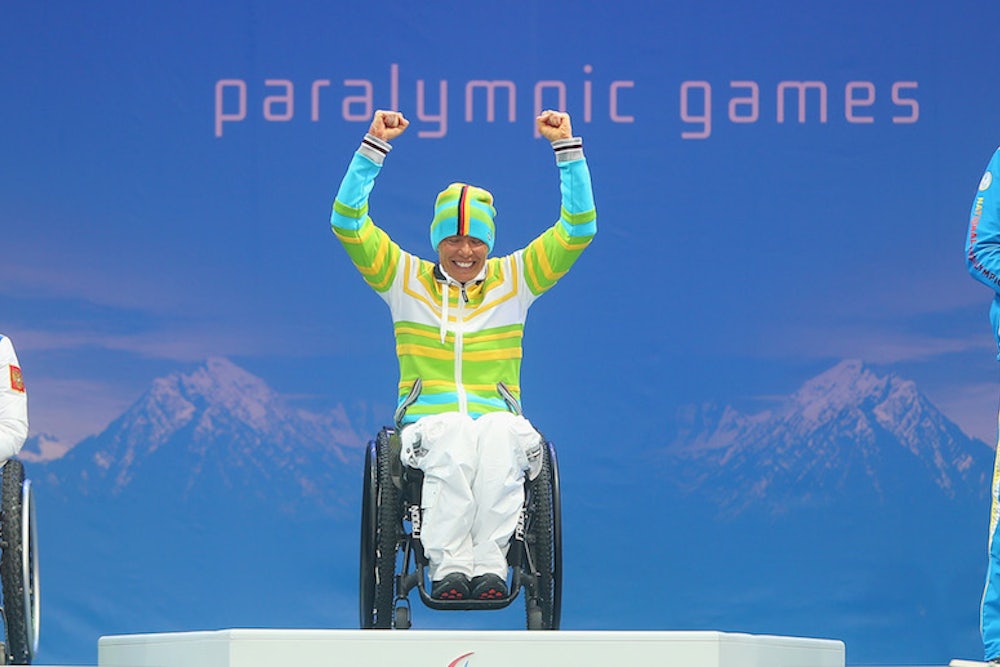Oscar Pistorius is grabbing more headlines than any other Paralympian right now, even though—you may be surprised to learn—the Paralympic Games were going on for two weeks before ending Sunday.
But here’s something to ease your guilt if you skipped the Paralympics: Most disabled people don’t watch—or like—the event, either. According to a 2011 poll commissioned by U.K. disability charity Scope, nearly one in four disabled people believe the Paralympics are patronizing, and two-thirds would prefer they be merged with the Olympics. Six months before the London Games, just 11 percent of British people—and less than a quarter of British disabled people—said they were excited about the Paralympics.
For a 2013 paper in the journal Disability & Society, a team of sports researchers led by Stuart Braye—a Paralympic medalist himself—investigated disabled people’s attitudes towards the Paralympics by surveying 32 disability activists in the U.K. Braye was surprised by their “negative and at times vitriolic comments…towards Paralympic athletes.”
“The overwhelming perception in this preliminary analysis,” the authors concluded, “suggests that the Paralympic Games can be counterproductive to disability rights beyond sport.” Disability activists had a few key concerns.
The coverage is condescending
“In the media coverage of Paralympic sport there is a disproportionate emphasis around impairment compared with sporting achievement…. Much of the Paralympic coverage is focused on the patronizing language around disablement.”
Faith stated:
Some of the TV coverage of the Paralympics is good but still has a feel of ‘oh isn’t it a shame, look at the poor cripple’ it just makes non-disabled people see disabled people as ‘brave’ or ‘courageous.’
Coming on the heels of the Olympics, they seem that much less exciting
Twenty percent of those surveyed in the Scope poll said the Paralympics made disabled people appear second class, and Braye’s results support that finding.
"Twenty-eight percent inferred that the weakness of the Paralympic Games may be its proximity to the Olympics:
Tony stated:
The relentless effort to market disabled athletes alongside Olympic ones has backfired in my opinion. It magnifies differences rather than erode them, like a child continually compared to his cleverer elder sibling always disappoints regardless of doing his best.
"The position of the Paralympics following the hype of the Olympics lends itself to a tired response from the media who have given everything to the main event, so to speak. This is documented by Golden’s... research on sports reporters’ generally negative views of the Paralympics immediately following the Olympic Games, with one stating: ‘We’re Olympic’d out. We’re tired. Our readers are tired.’ If reporters lack the will to cover the Paralympics in positive terms, then it is likely that they will revert to the more recognized paternal narratives of disability."
They misrepresent disabled people
"The power of the ‘supercrip’ and ‘triumph over tragedy’ stories convey the Paralympics to a mass audience at the expense of less glamorous narratives associated with typical experiences of disability… the reality of disability is replaced by a confused fictional ontology that is reinforced by Paralympic imagery and narrative…. Some participants were concerned that the Paralympics misrepresented what life is really like for many disabled people. They felt that the Paralympics portrays a confused and at times inaccurate message about disability, and consequently it reinforces negative stereotypes.”
Maggie stated:
I don’t think seeing amazing achievements by disabled athletes demonstrates in any way the day to day struggles of living as a disabled person, or makes people think about such things as accessibility etc.
